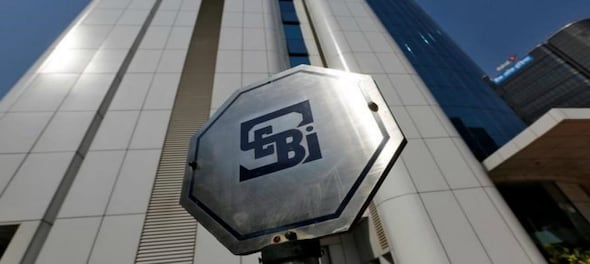
As the market prepares for a new system of stock settlements in January next year, many on Dalal Street are wondering how it will change things for them.
Capital market regulator Securities and Exchange Board of India (Sebi) recently introduced an optional 'trade day plus one' or 'T+1' cycle of settlements for equities.
In the new system, due to come into force from January 1, 2022, once a trade is executed, the settlement will be carried out within one day as against the current system of T+2, wherein it takes two days.
Also read:
The T+1 system will be optional for now, which means an exchange may choose whether to go for it or not. The regulator has a simple goal: to enhance market liquidity.
Once a bourse switches to the new system, it will have to stay with it for at least six months and may switch back to the current T+2 system only after serving a notice of one month. So let's say an exchange opts for T+1 today and decides to return to the older system, it will only be able to do so in seven months.
While Sebi is confident of moving to the new T+1 setup, many brokers have opposed the move as they await more clarity on how the new system will work. Some market participants have even raised concerns on interoperability in case two exchanges follow different systems for the same equity.
What happens then?
Ashish Rathi, the whole time director at HDFC Securities, said retail brokers are "ok with the implementation since more or less processes are now geared up for T+1 settlement." He has, however, raised concern from the perspective of the ecosystem as a whole.
For T+1 to be successful, the depositories, exchanges, clearing corporations, brokers/clearing members and banking systems have to function in a seamless manner.
"Any disruption or impact on these will affect settlements since the time period will be shortened. Systems and the infrastructure of the entire ecosystem will have to be geared up to perform consistently since it's not a one-off event," he told CNBCTV18.com.
He believes the T+1 system will certainly benefit retail investors, as they will have more liquidity at their disposal. It will reduce the working capital and margin requirements for brokers, but only once the entire system moves to the new (T+1) system. He, however, feels that retail participation may not increase just because settlement will happen in a shorter span of time.
Moving the entire ecosystem to T+1 settlement with a proper timeframe would have been more beneficial, but the current optional method in some securities makes it more challenging for systems and technology.
"We will have to wait for clarity from exchanges and clearing corporations on details of the implementation (of T+1)... Institutional investors have already raised concerns for various reasons such as time differences and pre-funding requirements," Rathi added.
The new system will safeguard investors’ interests, ensuring the seller gets funds in one day, instead of two, to reinvest, said Amit Pamnani, chief investment officer and DGM, (Investment Banking) at Swastika Investmart. One advantage is that it will control the risk associated with price fluctuations, giving more power to investors.
But on the other hand, a T+1 system will also leave scope for settlement errors as same-day payments need to be executed by investors and margin money/working capital funds managed by brokers/sub-brokers/institutional investors, he said.
"We think it will be required to upgrade the technology and make the settlement process seamless to avoid any such glitches," Pamnani told CNBCTV18.com.
Interoperability
In case one of the exchanges opts for T+1 for one stock on which another has stayed with the existing system, interoperability will definitely be a challenge, said Rathi. This is because settlements are done by clearing corporations, which are unified.
Rathi sees the situation wherein a customer buys a stock on one bourse and sells it on another as a big hurdle when it comes to the incoming regime. "The same security having different settlements on different exchanges will be really a challenge... We will have to wait for details and clarity from all market infrastructure institutions (MIIs) on the implementation part," he added.
Yash Gupta, Equity Research Analyst, Angel Broking, also believes that such a scenario might create some issues. "We believe that exchanges and Sebi will work together and may come up with some common list of scrips for a particular settlement cycle," Gupta said.
Giving a sense of how he thinks it may be worked out, Rathi said, "It may be introduced by one exchange on exclusively listed securities, meaning the security is traded only on one exchange... This can be implemented at an initial stage and a pilot may also be provided whether the entire cycle can be moved to T+1 settlement," he said.
While a T+1 system will be good for traders, it may not have much of an impact on long-term investors, according to Gupta of Angel Broking. "The new mechanism will impact the auction market also if the seller is not able to deliver its stock on the settlement day as those shares will come in the auction," he said. As of now, auctions are done on a T+3 basis, which will also reduce to T+2.
Gupta believes that overall it is a positive development for investors as it can help in easing some of the pressure from the 100 percent upfront margin under the fourth instalment of changes brought about by Sebi that took effect on September 1, 2021.
(Edited by : Jomy Jos Pullokaran)
Check out our in-depth Market Coverage, Business News & get real-time Stock Market Updates on CNBC-TV18. Also, Watch our channels CNBC-TV18, CNBC Awaaz and CNBC Bajar Live on-the-go!


Supreme Court says it may consider interim bail for Arvind Kejriwal due to ongoing Lok Sabha polls
May 3, 2024 4:57 PM
10% discount on fare on Mumbai Metro lines 2 and 7A on May 20
May 3, 2024 2:40 PM

